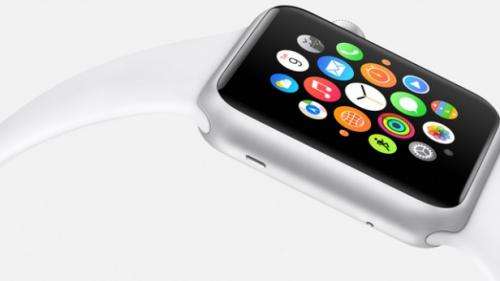Apple Watch, Fitbit can diagnose hypertension and sleep apnea: study

A new study from the University of California, San Francisco and a health startup suggests that Apple Watch and Fitbit can accurately diagnose common health issues such as hypertension and sleep apnea.
The study published by the startup, Cardiogram, and UCSF Health Lab said hypertension and sleep apnea were diagnosed on wearables with 82 percent and 90 percent accuracy, respectively. Those rates are slightly lower than the rate for abnormal heart rhythm, which Cardiogram and UCSF diagnosed with 97 percent accuracy in a previous study from May.
Cardiogram - which is not affiliated with Apple or Fitbit - and UCSF determined accuracy levels by using artificial intelligence to pick up abnormal patterns in heart rate.
The study was conducted with more than 6,000 subjects, 37 percent and 17 percent who had hypertension and sleep apnea, respectively. The study will be subjected to months of peer-reviewed clinical research to validate the findings. Cardiogram says it plans to expand its studies into diagnosing pre-diabetes and diabetes.
"What if we could transform wearables people already own - Apple Watches, Android Wears, Garmins, and Fitbits - into inexpensive, everyday screening tools using artificial intelligence?" wrote Cardiogram co-founder Brandon Ballinger in a Medium post.
Hypertension, or high blood pressure, and sleep apnea, in which breathing repeatedly stops and starts during sleep, affect millions of Americans - most of whom do not know they have either disorders. More than 80 percent of Americans with sleep apnea are undiagnosed, according to the American Sleep Apnea Association.
More than 18 million Americans are estimated to have sleep apnea, but those with hypertension are far more prevalent. More than 75 million Americans - or 29 percent - have hypertension, according to the Center for Disease Control.
Hypertension and sleep apnea cost the United States $46 billion and $150 billion, respectively, in direct medical spending, lost productivity, and accidents, according to two separate studies by the CDC and American Academy of Sleep Medicine.
Apple and Fitbit have been actively looking into expanding their medical research into abnormal heart rhythm, hypertension and sleep apnea. Apple partnered with Stanford School of Medicine to study how Apple Watch can detect abnormal heart rhythm in its proprietary Health apps.
"One of the things that we've learned that we've been really surprised and delighted about is this device ... has essentially alerted people through the collection of the data that they have a problem," said Apple CEO Tim Cook in an interview with Fortune in August. "And that spurred them to go to the doctor and say, 'Look at my heart rate data. Is something wrong?' And a not-insignificant number have found out if they hadn't come into the doctor they would have died."
Fitbit for months has said it is focusing on sleep apnea. The company's new smartwatch, Ionic, has a new optical sensor to better collect data to diagnose sleep apnea.
In an interview with The Verge on Fitbit's sleep apnea efforts in August, Fitbit CEO James Park said the company will need to do many clinical trials to get its technology approval for future diagnoses.
"Diagnostics is a tricky term," said Park. "But definitely over time we hope to progress from screening in conjunction with a medical professional, to more diagnostics or treatment."
In September, both Apple and Fitbit were selected by the Food and Drug Administration to participate in a trial program allowing the companies to skip certain regulations to expedite innovation.
©2017 The Mercury News (San Jose, Calif.)
Distributed by Tribune Content Agency, LLC.

















